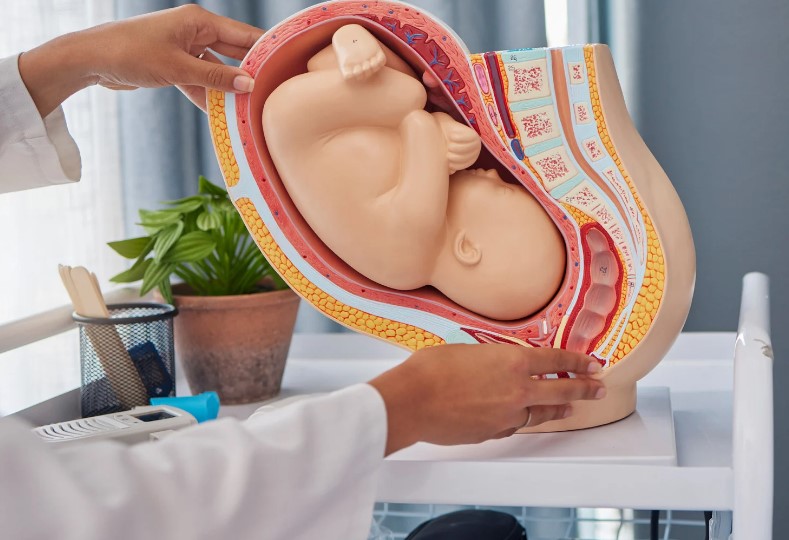Carole Falletta, MS, MA, PMHNP-BC, FNP-BC, RNC-EFM, IBCLC, LCCE Carole is a nurse practitioner with over 30 years of experience in nursing, specializing in women's health, newborn care, and reproductive and postpartum mental health. Actively practicing in healthcare, she supports women and families during the perinatal journey through compassionate, evidence-based care. A dual board-certified nurse practitioner in psychiatric and family health, Carole is also an International Board-Certified Lactation Consultant (IBCLC) and Lamaze Certified Childbirth Educator, combining her clinical expertise and passion for education to empower mothers and babies.
Bringing a newborn into the world is an exciting and joyous event, but it can also come with its share of worries and questions. One common concern for new parents is noticing that their baby loses weight in the first few days after birth. While it might seem alarming at first, this weight loss is a normal and expected part of a newborn’s early days. Let’s explore why babies lose weight after birth and why this is generally nothing to worry about.

Understanding the Initial Weight Loss
Newborns typically lose about 5-10% of their birth weight within the first week of life. This is completely normal and happens for several reasons:
1. Loss of Excess Fluid
Babies are born with extra fluid in their bodies, which they gradually lose in the first few days. This fluid loss contributes to the initial weight loss and is a natural process as the baby adjusts to life outside the womb.
2. Adjustment to Feeding
In the early days after birth, babies are still learning how to breastfeed or bottle-feed. Their feeding patterns can be irregular, and they might not consume large amounts of milk initially. Additionally, the mother’s milk supply takes a few days to fully come in, especially if she is breastfeeding. This period of adjustment can result in a temporary decrease in weight.
3. Meconium Passage
Newborns pass their first stool, known as meconium, within the first few days of life. Meconium is made up of materials ingested during their time in the womb. As babies pass meconium and transition to regular stools, they lose a small amount of weight.
4. Energy Expenditure
Being born is hard work! Babies expend a lot of energy during the birthing process and as they adjust to their new environment. This energy expenditure, combined with their initial feeding learning curve, can result in a slight weight loss.
Monitoring and Managing Weight Loss
While weight loss in the first few days is normal, healthcare providers will monitor your baby’s weight to ensure it stays within a healthy range. Here’s what to expect and how you can help manage your baby’s weight loss:
1. Regular Weigh-Ins
In the hospital, your baby’s weight will be checked regularly, typically in the early hours of the day. After you go home, your pediatrician will continue to monitor their weight during follow-up visits. It’s important to attend these appointments to ensure your baby is growing and gaining weight appropriately.
2. Feeding Support
If you’re breastfeeding, a lactation consultant can provide valuable support to ensure your baby is latching well and getting enough milk. For formula-fed babies, your healthcare provider can guide you on the appropriate amount and frequency of feedings.
3. Look for Feeding Cues
Pay attention to your baby’s feeding cues, such as rooting, sucking on their hands, or becoming more alert. Feeding your baby on demand, rather than on a strict schedule, can help ensure they’re getting enough nutrition.
4. Keep Track of Diapers
One way to gauge if your baby is feeding well is to monitor their wet and dirty diapers. By the end of the first week, your baby should have at least six wet diapers and three to four dirty diapers a day.
Reassurance for New Parents
It’s natural to worry about your baby’s weight, but remember that this initial weight loss is a normal part of their transition to life outside the womb. Most babies regain their birth weight by the time they are two weeks old. If you have any concerns about your baby’s weight or feeding, don’t hesitate to reach out to your healthcare provider for guidance and support.
Understanding why babies lose weight in the first days after birth can help ease some of the anxieties that come with being a new parent. This initial weight loss is usually a normal and temporary phase as your baby adjusts to their new surroundings and feeding routine. With the right support and care, your baby will soon be on their way to healthy growth and development. Enjoy this special time with your newborn, and remember that healthcare providers are there to support you every step of the way.

Carole Falletta, MS, MA, PMHNP-BC, FNP-BC, RNC-EFM, IBCLC, LCCE Carole is a nurse practitioner with over 30 years of experience in nursing, specializing in women's health, newborn care, and reproductive and postpartum mental health. Actively practicing in healthcare, she supports women and families during the perinatal journey through compassionate, evidence-based care. A dual board-certified nurse practitioner in psychiatric and family health, Carole is also an International Board-Certified Lactation Consultant (IBCLC) and Lamaze Certified Childbirth Educator, combining her clinical expertise and passion for education to empower mothers and babies.



